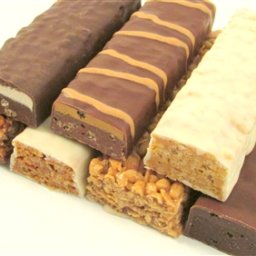Client: I’ve gained 10 lbs since last year. My doctor told me since I’m 40, it’s age-related.
Do you remember when you could eat anything you wanted and not gain weight? There’s long been an assumption that your metabolism slows as you age, but studies show your metabolism, the rate you burn calories, doesn’t slow down as you age!
The Research
Four Pennington Biomedical researchers were part of an international team of scientists who analyzed the average calories burned by more than 6,600 people daily. The subjects ranged from newborn to 95 years old and lived in 29 countries from various ethnic backgrounds and cultures. The results were almost exactly the opposite of what our observations might have led us to believe.
The researchers used a sophisticated technique called the “doubly labeled water” method to generate a number for total daily energy expenditure. It’s a urine test that involves having a person drink water. The hydrogen and oxygen in the water molecules have been replaced with naturally occurring “heavy” forms and then measured how quickly they’re flushed out. This method is the gold standard for measuring daily energy expenditure (the total calories you burn daily).
Our metabolic rate is highest when we are babies, peaking at about 12 months of age. It slows down by about 3 percent each year until our 20s when it becomes a new normal.
Another surprise? People’s metabolisms were remarkably stable from age 20-60, and there was virtually no slowing in midlife.
So then, why do so many people gain weight in Their midlife?
The answer is simple; we eat the same or more but move less.
We can go the entire day without raising our heart rate, and everything can be done with a button from our cars, elevators, phones, televisions, and microwaves. In less than 20 minutes, we can drive through a fast food joint and quickly consume over 2,000 calories, and all we have to do is use our fingers to retrieve it.
When you were young, you were hopping and skipping all over. In college, you walked all over campus from class to class getting thousands of steps. Even if you were bar hopping, you moved from bar to bar for hours.
Then when you have kids, you’re changing diapers, getting them dressed, carrying them around, and catering to their every need.
When your kids become self-sufficient, you move less. Don’t forget to add in the high-calorie parties and holidays. The pounds continue to add up while never getting burnt off.
Furthermore, we gain weight as we get older because:
- Your workouts aren’t as long or intense as they once were.
- You went from a serving job to a desk job.
- You might feel stiff and achy, so you move less. (Unfortunately, inactivity accelerates this process.)
- Your leisure activities are less active than they used to be
- When we use our bodies less, our body composition also changes. We lose muscle mass, reducing the calories we burn at rest. Your metabolism might be slowing down—but not due to your age; it is slowing down due to lifestyle choices.
How To prevent midlife weight gain
The good news is that much more of this may be within our control than we previously assumed. Make sure you are doing most or all of these:
- Track your food in a food tracking app to know how many calories you eat daily. I like MyFitnessPal
- Move more – aim to get 10,000 steps a day.
- Lift weights to boost your metabolism. Get my Cuts and Curves Workout Guide if you need a strength training program.
- Switch up your cardio. Your body gets used to doing the same cardio, so you won’t burn as many calories as you once did. If you ride your bike daily, switch to walking, swimming, etc., at least twice a week.
- Increase the amount of weight you lift or how many reps or sets you do.
- Limit processed foods. Processed/packaged foods (chips, cookies, crackers, etc.) were designed to make you overeat.
- Eat protein with every meal and snack. Protein helps keep you fuller longer, making it easier to curb over-eating. It also helps us build and maintain muscle tissue (along with an effective workout program), which helps us burn more calories at rest (while you read this blog post).
aftannFIT Protein Tip: Meat, eggs, fish, and dairy are the best protein sources. Beans, legumes, grains, nuts, and seeds also provide protein, just not nearly as much per serving. It takes more plant-based foods to provide the same amount of protein you’d get from fewer servings of most animal-based foods.
Takeaways:
- Track your food and steps because people are unaware of how much they consume and how little they move.
- The metabolism starts to slow around age 60, but the slowdown is gradual, only 0.7 percent a year. A person in their 90s needs 26 percent fewer calories each day than someone in midlife.
- Lift weights to boost metabolism
- Stop buying foods that make you fat (processed foods).
Accountability + Guidance
I offer Personal and Group training and an online 12-week program with a customized meal plan and workouts.
For more fitness and nutrition information, follow @aftannfit on Facebook and Instagram.
This research was supported by the United States National Science Foundation (BCS-1824466), the International Atomic Energy Agency, Taiyo Nippon Sanso, and SERCON. Other Pennington Biomedical scientists are Peter Katzmarzyk, Ph.D., Associate Executive Director for Population and Public Health Sciences; Corby Martin, Ph.D., Professor and Director of Ingestive Behavior Laboratory; and Eric Ravussin, Ph.D., Associate Executive Director for Clinical Science.






